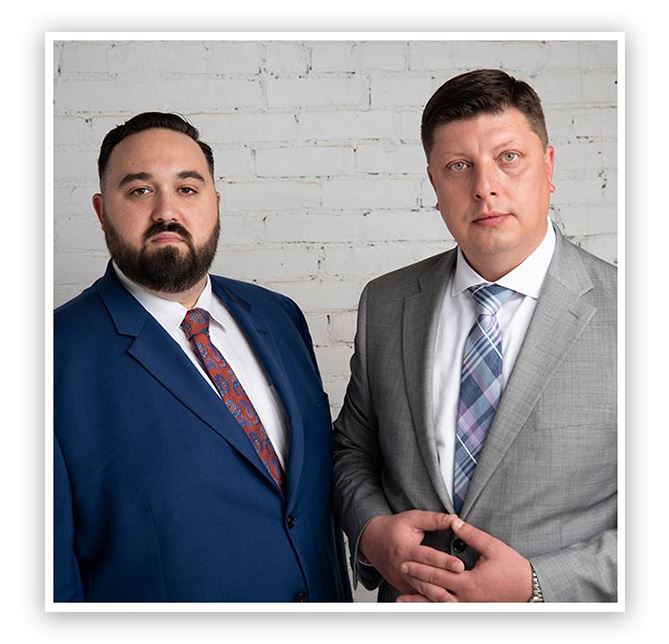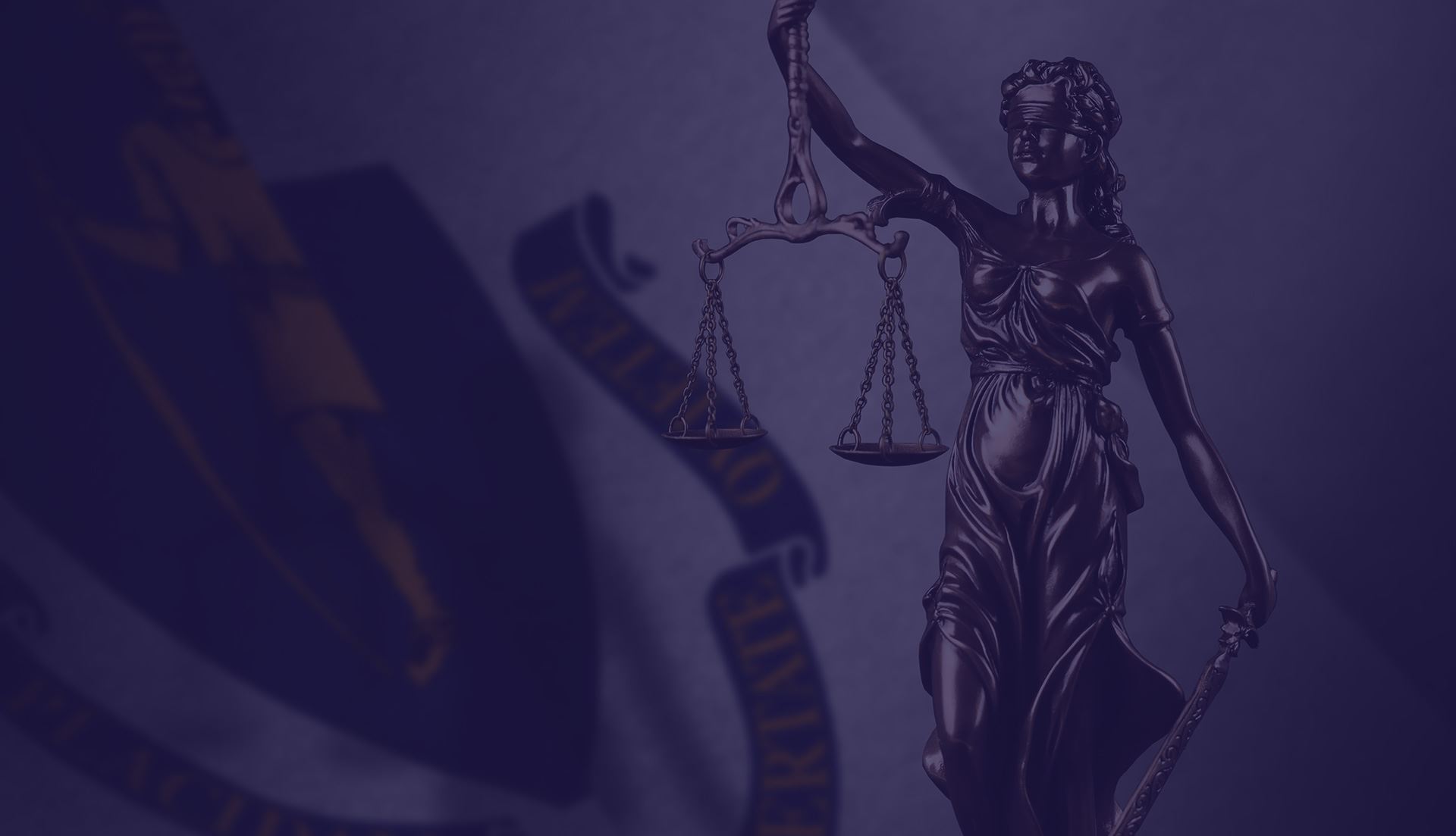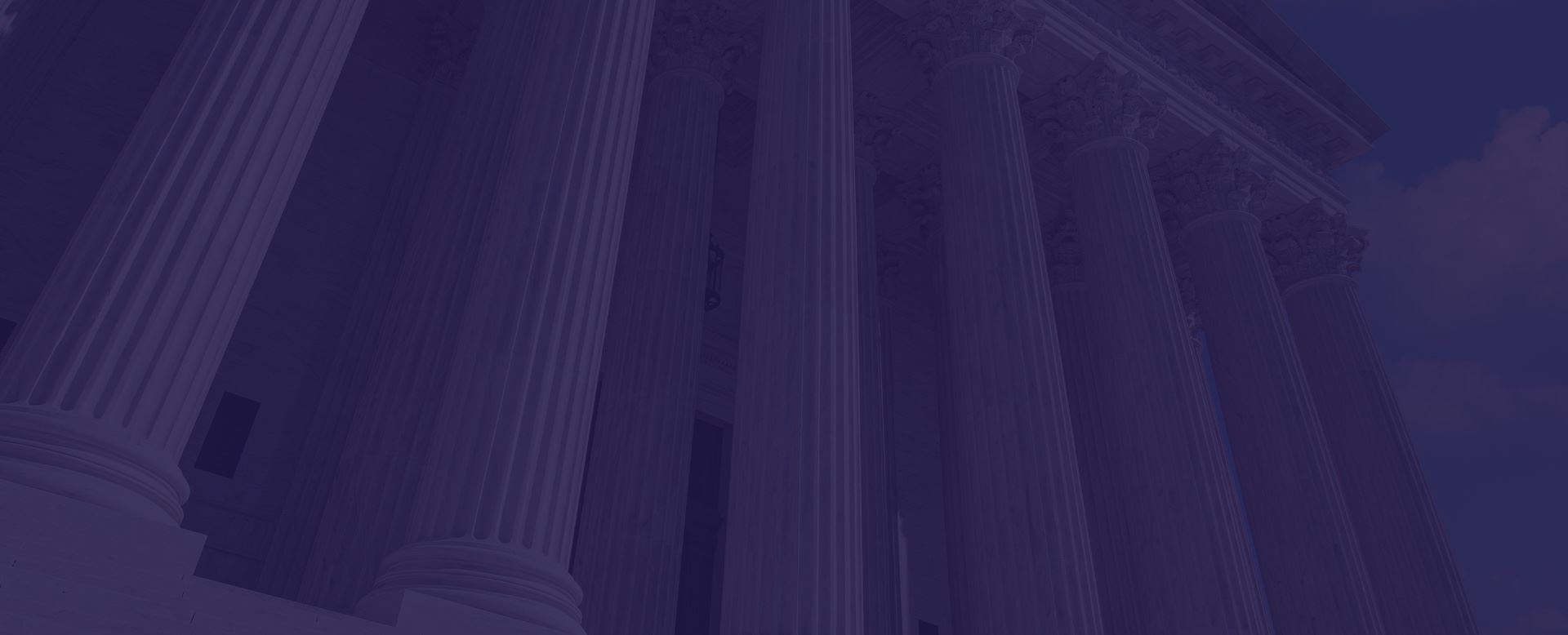
Boston OUI Attorney
Arrested for OUI in Boston? DeGiacomo & Mikhlin, P.C. Can Defend Your Rights
Operating under the influence (OUI) is a serious offense in Massachusetts. A person can be charged with OUI for having a blood alcohol content (BAC) of at least .08 percent, unless they are a commercial driver (.04 percent) or under 21 years old (.02 percent).
If you or a loved one was recently arrested for OUI in Boston, do not hesitate to reach out to the Degiacomo & Mikhlin, P.C. for experienced and responsive legal services. With nearly a decade of legal experience, Attorneys James G. DeGiacomo and Sergey Mikhlin are former prosecutors who have handled thousands of criminal cases, including many OUI charges.
Contact the firm today at (617) 941-3666 and request a free initial consultation.
Understanding OUI Defense in Boston
Being charged with an OUI in Boston can be overwhelming, especially with the city's unique legal landscape and the potential consequences that come with such an offense. The Boston Police Department and the Massachusetts Registry of Motor Vehicles are key entities that enforce OUI laws. Residents often face challenges such as navigating the court system, understanding the implications of an OUI charge on their driving record, and the potential for increased insurance rates.
In addition to legal ramifications, many individuals worry about the impact an OUI charge can have on their employment and personal life. Boston's vibrant job market, particularly in sectors like education and healthcare, often scrutinizes criminal records, making it essential to address these charges promptly and effectively. Our team at Degiacomo & Mikhlin, P.C. is well-versed in the local laws and can help you navigate these challenges with confidence.
Penalties for OUI Convictions in Massachussetts
We understand that every legal matter is unique, and we are committed to providing personalized support to our clients in Boston. Whether you are facing your first OUI offense or have prior charges, we can help you explore your options and work towards a favorable outcome. Don't let an OUI charge define your future—reach out to us today for a free consultation.
The severity of OUI penalties depends on prior offenses and aggravating factors:
First Offense OUI
- Fines: $500 - $5,000
- License Suspension: Up to 1 year
- Possible Jail Time: Up to 2.5 years
- Alternative Disposition: Probation, alcohol education programs, and shorter license suspension
Second Offense OUI
- Fines: $600 - $10,000
- License Suspension: 2 years
- Jail Time: Minimum of 30 days, up to 2.5 years
- Ignition Interlock Device: Required for license reinstatement
Third Offense OUI (Felony)
- Fines: $1,000 - $15,000
- License Suspension: 8 years
- Jail Time: Minimum of 150 days, up to 5 years
- Vehicle Forfeiture: Possible confiscation of vehicle
Fourth and Subsequent Offenses
Higher fines, longer jail sentences, and permanent license revocation may apply.


OUI Cases Types
- Challenging OUI Convictions
- Felony OUI
- How To Fight An OUI Case
- I've Been Arrested For OUI, Now What?
- Important OUI Evidence
- OUI First Offense
- OUI Fourth Offense
- OUI License Suspensions
- OUI Motions
- OUI Second Offense
- The OUI Case Process
- Third Offense OUI
- Underage OUI
- What Happens If You Refuse The Breathalyzer
- What Is a CWOF Continuance
Understanding Massachusetts OUI Laws
According to Massachusetts Laws, to prove you guilty of OUI/DUI/DWI the Commonwealth must prove three things beyond a reasonable doubt: that you (1) operated a motor vehicle, (2) upon a public way, (3) while impaired by the ingestion of alcohol or illicit drugs. If they cannot establish one of these elements beyond a reasonable doubt, you are entitled to a verdict of not guilty. Here is a brief explanation of how these issues are fleshed out at trial.
What Constitutes 'Operation' in an OUI Case?
To prove that you operated a motor vehicle, the Commonwealth needs to show that you took some affirmative action that either on its own, or in sequence, would set the car in motion. If you weren’t behind the wheel, or if the keys weren’t in the ignition, or if the engine wasn’t on, this can be a difficult element for the government to prove. Your statement that you were “just driving home from a party” does not, as a matter of law, prove that you operated that car. Attorneys James G. DeGiacomo and Sergey Mikhlin, as former Massachusetts prosecutors, know when operation is an issue in your OUI case. Based on the facts of your legal issue, they may show the jury that the Commonwealth cannot prove that you were driving beyond a reasonable doubt and that you are not guilty.
What is the Definition of 'Public Way' in OUI Offenses?
A public way, for purposes of Massachusetts OUI law, includes all state and interstate highways as well as municipal streets and roads. It also includes public parking areas as well as those places to which the general public has a right of access whether as guests or customers. More often than not, if you’re driving a car there, chances are it is a public way.
How Can The Prosecution Prove 'Impairment' Due to Alcohol or Drugs?
To convict you of an OUI in Massachusetts the prosecution must prove that at the time you were operating that motor vehicle, on that public way, your ability to do so safely was impaired by the ingestion of alcohol. There are two ways for the government to prove your impairment. The first is through evidence of your operation and performance on field sobriety tests. In virtually every Massachusetts OUI matter, the officer will indicate that your eyes were “bloodshot and glassy” or that there was an “odor of alcoholic beverage on his breath” and that when you spoke, your speech was slow and slurred. None of these things mean that your ability to operate a motor vehicle was hampered in any way.
What are Common Defenses Against OUI Charges?
A Boston OUI attorney can build a defense by challenging various aspects of the case. If law enforcement lacked reasonable suspicion for the traffic stop, any evidence gathered may be inadmissible. Field sobriety tests can be unreliable due to external factors like weather or medical conditions. Breathalyzer results may also be disputed if the device was not properly calibrated or maintained. Additionally, certain medical conditions and medications can affect test results, while improper handling of blood samples can lead to inaccurate BAC readings. A skilled lawyer will analyze these factors to develop a strong defense strategy.
How Do Field Sobriety Tests Impact OUI Cases?
You have an affirmative right to refuse to perform field sobriety tests. The police cannot compel you to jump through hoops just because they ask you to. If you perform the Alphabet Test, the Counting Backwards Test, the Nine-Step-Walk-and-Turn Test, or the One-Legged Stand Test, officers will draw conclusions as to how your performance indicates to them that you cannot drive safely. Your performance on field sobriety tests is subjective and their ability to prove that you can’t drive safely is weak. As your Boston OUI lawyers, Attorneys James G. DeGiacomo and Sergey Mikhlin will show the jury that your performance on those tests is not enough to prove that you were too impaired to drive safely beyond a reasonable doubt.
How Can One Challenge Breathalyzer Test Results in Court?
Another way by which the Commonwealth can try to prove that you were “impaired” at the time that you were operating is by admission of evidence indicating that at the time your blood alcohol content was 0.08% or greater. This is most often presented in the form of a Breathalyzer test result.
You have an affirmative right to refuse the Breathalyzer. Assert that right. If you submit to a Breathalyzer test, you are providing the police with evidence that they can and will use against you in your criminal matter.
There are many ways by which Attorneys James G. DeGiacomo and Sergey Mikhlin can call into question the validity of your Breathalyzer test sample. For example, as your body processes alcohol your BAC may rise or fall over time. The portable breath test that many people submit to at the roadside is not admissible in your criminal trial; the only breath sample that the Commonwealth may use against you at trial is the one that you provide at the police station sometime after your arrest and long after you were driving. If you give a breath sample an hour after you were driving, maybe your BAC is higher than it was when you were behind the wheel. The statute requires proof that you were impaired at the time that you were driving that motor vehicle, not an hour later at the police station. That is reasonable doubt that will help prove your innocence.

What Makes This Firm Different?
Feel Confident in Choosing Degiacomo & Mikhlin, P.C.
-
Available to Clients 24/7
-
Nearly a Decade of Legal Experience
-
Successfully Defended Hundreds of Clients
-
Former Prosecutors & Knows How That Side Thinks
-
Represented Clients in MA District, Superior, & Appellate Courts
Why Choose DeGiacomo & Mikhlin, P.C. for Your OUI Defense?
When facing an OUI charge, the stakes are incredibly high. Choosing the right legal representation can make all the difference in the outcome of your case. At DeGiacomo & Mikhlin, P.C., we bring a wealth of experience and a proven track record in defending clients against OUI charges in Brockton and the surrounding areas.
Here’s why you should consider us as your trusted legal partner:
- Personalized Legal Strategy: We understand that each client situation is unique. Our team takes the time to listen to your story, assess the details of your situation, and craft a tailored defense strategy that aligns with your specific needs.
- Extensive Knowledge of Local Courts: Our familiarity with the Brockton legal system allows us to navigate the complexities of your legal situation effectively. We know the judges, prosecutors, and procedures, which can be a significant advantage in your defense.
- Commitment to Client Education: We believe that informed clients make the best decisions. Throughout the process, we will keep you updated and explain your options, so you never feel lost or overwhelmed.
- Strong Advocacy: Our attorneys are fierce advocates for our clients. We are committed to protecting your rights and fighting for the best possible outcome, whether through negotiation or trial.
- Proven Results: Our history of successful OUI defenses speaks for itself. We have helped numerous clients reduce charges, achieve dismissals, and minimize penalties.
Call (617) 941-3666 or reach out online to learn more about our effective and personalized legal solutions.